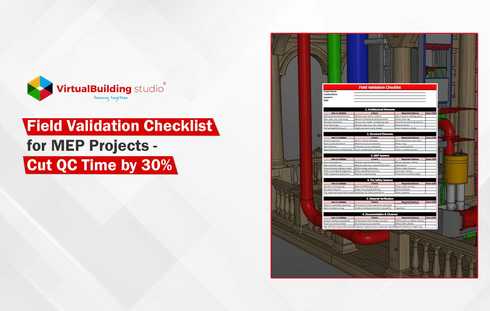
Why Free HSW Webinars Are a Lifeline for Architects
Every year, licensed architects in the US face a familiar task. Tracking and completing their required Learning Units (LUs) to stay compliant with the American Institute of Architects (AIA) Continuing Education System. Among these, 18 credits must qualify as HSW (Health, Safety, and Welfare), a category focused on safeguarding the public and improving building performance through better design practices.
The Continuing Education Mandate
The HSW requirement ensures that architects remain up to date on topics like life safety, accessibility, energy conservation, and material health. But while the intent is clear, fulfilling this mandate often creates pressure, especially for small firms or solo practitioners.
The Real-World Challenges Architects Face
- Budget Constraints: High-quality courses can be expensive, limiting access to everyone
- Time Pressure: Project deadlines leave little room for learning during work hours
- Constant Change: Keeping pace with building codes, sustainable design practices, and technology like BIM or IAQ tools is demanding
That’s why no-cost AIA-approved HSW webinars are more than just convenient, they’re essential. In the sections ahead, we’ll explore highly-rated options that help architects meet their education requirements while solving real-world design challenges, without added costs or time strain.
How Free Webinars Help Achieve Mandatory AIA HSW Credits
Architects in the US are required to complete 18 Health, Safety, and Welfare (HSW) Learning Units (LUs) annually to maintain AIA membership and state licensure. These credits must be earned through content that directly improves building performance and protects the well-being of occupants.
Free AIA-approved HSW webinars offer an accessible path to fulfill these requirements without compromising on content quality or workflow efficiency.
Here’s how these webinars help:
Zero-Cost, High-Quality Learning: Delivered by licensed professionals, code consultants, and manufacturers, these webinars cover critical topics like accessibility, fire safety, sustainable materials, and resilience at no cost.
On-Demand Flexibility: Many webinars are available on demand, letting architects earn credits during non-billable hours or project downtimes.
Up-to-Date Code Knowledge: Courses often focus on recent changes in the IBC, ADA, IECC, and other jurisdictional codes, essential for staying compliant and avoiding costly design errors.
HSW-Specific Focus: Only AIA-approved HSW courses count toward the mandatory 18. These webinars are pre-vetted to meet that criterion.
Documentation & Reporting: Most platforms submit credits directly to AIA, simplifying compliance tracking.
Hence, free webinars eliminate the financial and logistical barriers to staying licensed, making it easier for architects to meet their obligations while staying current with evolving best practices.
Upcoming Top 10 FREE AIA-Approved HSW Webinars – You Must Attend in 2025
With so many webinars available, it can be overwhelming to identify which ones truly deliver value, both in knowledge and practical application. The following curated list features five upcoming no-cost AIA-approved HSW webinars that stand out for their technical depth, relevance to current challenges, and direct alignment with AIA’s continuing education criteria.
Webinar 1 - The Art of Wood Finishing: Techniques, Applications, and Biophilic Design
- Date & Time: August 5, 2025 - 12:00 pm EDT
- Credits: 1 LU/HSW
- Platform: Ron Blank & Associates webinar
- Cost: Free
Overview: Explore innovative uses of sustainable wood products in architecture, covering advanced finishing techniques (e.g., Shou Sugi Ban, brushing, thermal modification) and biophilic design principles. It emphasizes how natural wood elements and low-VOC finishes enhance occupant health, safety, and welfare. Participants learn to specify high-performance wood products (cedar, fir, pine, etc.) with enhanced durability and aesthetics.
Topics include: Biophilic design; sustainable wood materials; advanced wood finishing (burning, brushing); low‐VOC stains and fire-resistant coatings.
Register Here : The Art of Wood Finishing: Techniques, Applications, and Biophilic Design
Webinar 2 - Green Building Through Sun Control Design
- Date & Time: August 6, 2025 - 12:00 pm EDT
- Credits: 1 LU/HSW
- Platform: GreenCE
- Cost: Free
Overview: Learn how buildings impact the natural environment through material choice and design, focusing on sun‐control strategies (e.g., sunshade and canopy systems) and recycled materials to improve sustainability
Topics include: Sunshade systems, daylighting canopy design, and specifying sustainable materials.
Register Here : Green Building Through Sun Control Design
Webinar 3 - Light‑Manipulating Materials: Engaging, Biophilic, & Sustainable
- Date & Time: August 7, 2025 at 13:00 EDT
- Credits: 1.5 AIA LU/HSW
- Platform: AEC Daily webinar
- Cost: Free
Overview: Explore how light‑manipulating materials such as resin, glass, and terrazzo panels with internal light channels can be integrated into architectural elements like privacy screens, signage, countertops, and flooring to enhance sustainability and occupant wellness.
Topics include: Material types & substrates; daylight redirection; biophilic applications; design/installation options; occupant health & engagement.
Register Here : Light‑Manipulating Materials: Engaging, Biophilic, & Sustainable
Webinar 4 - Sustainable Steel Framing in the Building Envelope
- Date & Time: August 12, 2025, 02:00 PM ET
- Credits: 1 LU/HSW
- Platform: CE Center
- Cost: Free
Overview: Learn how steel framing enhances sustainability and performance in building envelopes.
Topics include: Steel framing systems, thermal performance, moisture control, and code compliance.
Register Here:- Sustainable Steel Framing in the Building Envelope
Webinar 5 - Designing with Fixed Aluminum Ladders for Commercial & Industrial Projects
- Date & Time: August 26, 2025 - 12:00 pm EDT
- Credits: 1 LU/HSW
- Platform: Ron Blank & Associates webinar
- Cost: Free
Overview: Get to know the methods and benefits of using aluminum for fixed ladders in design. It reviews ladder material options, safety codes and standards, and customization possibilities. Participants learn about configuring ladders for safe, ergonomic use, available accessories, and real‑world case studies. The session highlights how custom aluminum ladders enhance building safety, durability, and design flexibility.
Topics include: ladder materials and pros/cons; OSHA/IBC ladder codes; custom ladder accessories (cages, rails); case studies of ladder designs.
Register Here : Designing with Fixed Aluminum Ladders for Commercial & Industrial Projects
Make Every Webinar Count: Tips to Learn, Apply & Grow
Attending an AIA-approved HSW webinar is just the first step. To truly benefit—both for licensure and practice—you need to approach these sessions strategically. Here's how to maximize every learning opportunity:
Pre‑Webinar Prep
Download materials in advance (slides, handouts). Review current project pain points and align them with the webinar topic.
During the Session
Take targeted notes, not just general ones, and focus on methods or details that could directly improve ongoing or upcoming projects.
Post‑Webinar Action
- Apply one new concept or technique from the webinar each week to a live project.
- Share takeaways with your team in internal meetings or Slack to spark discussion and embed knowledge.
- Log credits and reflect on what was immediately useful and what could apply later.
This active approach helps ensure that HSW credits don’t just fulfill a requirement, but improve your designs, workflows, and team knowledge in real time.
Conclusion - Unlock Long-Term Wins with the Right Webinars
Free AIA-approved HSW webinars can do more than fulfill a requirement—they help architects overcome real-world challenges like budget constraints, tight timelines, evolving codes, and wellness goals.
Looking to deepen your knowledge?
Start with our free, knowledge-based webinar: “Preventing Impact Noise in Residential Construction.” Led by acoustic expert Michael Ermann, it offers practical solutions for designing quieter, healthier homes.




